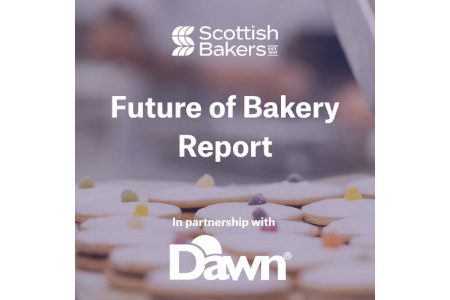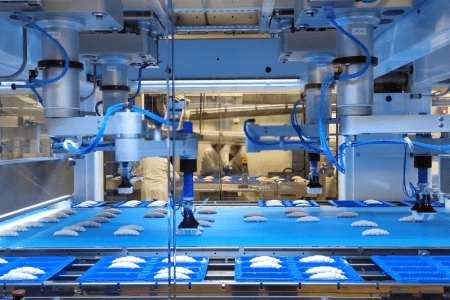A recent report released by the Food and Drink Federation (FDF) reflects eye-watering increases in food and drink inflation, as they rose by 16.9% in December, an increase from November’s figure of 16.5% and above the UK’s inflation of 10.5%.
Of the 49 main food categories reported in official statistics, only six recorded inflation in single digits. Low-fat milk reached an annual inflation rate of 46%, while olive oil sat at 39.5%, sugar at 38.5% and edible offal at 36.8%.
The bakery sector has been hit particularly hard, as the price of raw materials and ingredients has increased for sugar (38.5%), milk (38.5%), flours and cereals (29%) and eggs (28.9%). Some bakery producers have taken to using egg alternatives, to combat costs associated behind using traditional eggs: this includes alternative egg company OGGS and Nepra Foods, who are trialling a plant-based egg white powder replacement.
According to the FDF report, producer prices have continued rising in December and although data is not yet available, most recently available data showed UK-sourced ingredients were up 18.8% in October and imported ingredients were 31% more expensive. Goods leaving manufacturers’ facilities saw inflation reaching 16.1% in October.
However, good news is on the horizon: some prices associated with rising costs are easing, although slowly. Gas prices have been in freefall since the beginning of December 2022 and at the time of writing the report, gas prices on the UK spot market have come down from a five-fold increase in 2022 to a three-fold increase compared with figures in mid-2021 when prices started rising.
Global food prices fell in December 2022 to a level that is slightly lower than a year ago. Although a move in the right direction, overall global food prices were 51% higher than in 2019, with vegetable oils in particular more than doubling in price (126%).
Oil prices are also lower than in mid-2022 but still higher than pre-pandemic levels. Freight rates and overall global supply stress are moving towards pre-pandemic levels but this will take some time to get there.
If trends continue, according to the FDF, food inflation is likely to peak in mid-2023. The bad news, the organisation said, is that it will take a while for households to reap benefits, as manufacturers’ forward contracts with suppliers and fixed-term contract with customers means it takes between seven and 12 months for changes in producer costs to feed through onto shop prices.
This impacts vulnerable households the most. In November, UK real incomes fell by 2.6%. The Office of National Statistics (ONS) reported in December 2022 about half (51%) of adults reported buying less when food shopping in the last two weeks.
The FDF said that ministers can help the sector by addressing “burdensome” taxes and unsuitable regulations, to reduce unnecessary costs and bureaucracy facing businesses particularly SMEs.
Read more latest industry news and developments in our free to download magazine.
Never miss a story… Follow us on:
![]() International Bakery
International Bakery
![]() @int_bakery
@int_bakery
![]() @Bakeryint
@Bakeryint
Media contact
Caitlin Gittins
Editor, International Bakery
Tel: +44 (0) 1622 823 920
Email: editor@in-bakery.com






